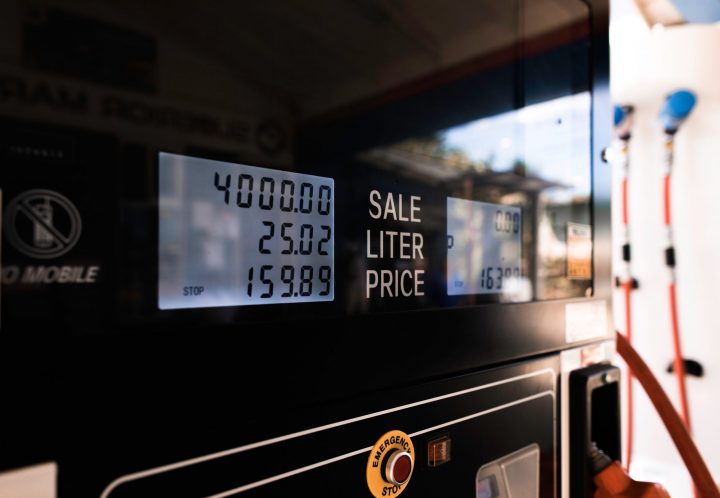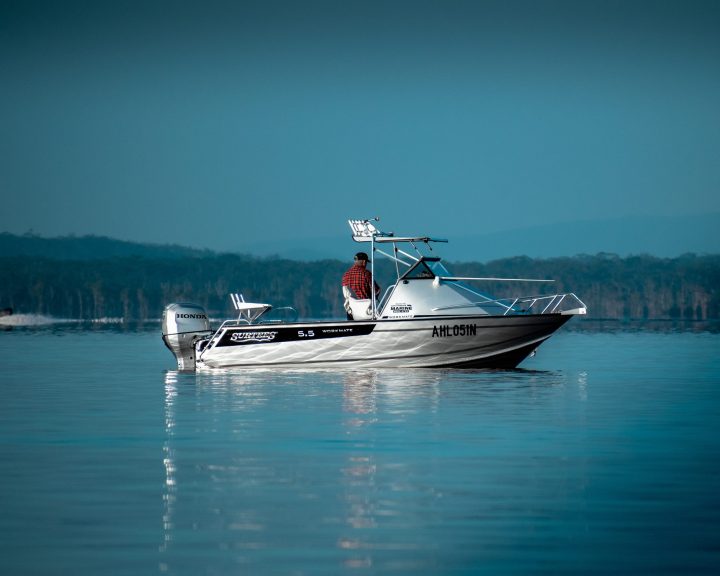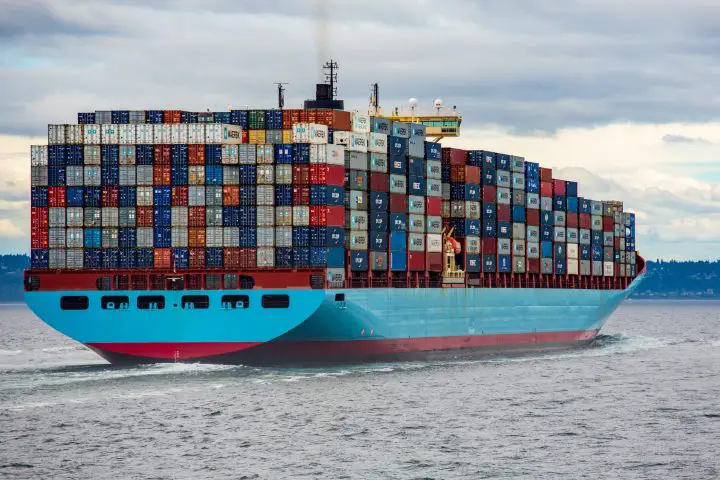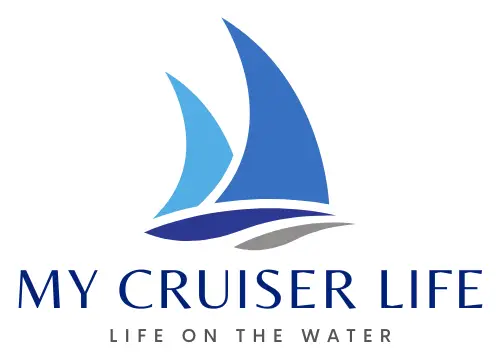Boats come in all shapes and sizes, so you might be wondering what fuel do boats use. The answer is as varied as all the different boats on the water – it depends!
Most small private boats have either gas or diesel engines. Figuring out which one you should use is an essential part of boat ownership.

Table of Contents
- What Kind of Fuel Should I Use in My Boat?
- Two Types of Boat Fuel – Boat Gas and Diesel
- Gas for Boats
- Diesel Engines and Boat Fuel
- Boat Fueling Tips
- What is Boat Gas? It’s Important, That’s What It Is!
- Boat Fuel FAQs
What Kind of Fuel Should I Use in My Boat?
The type of fuel you put in your boat is dependent on the type of engine it has installed. Therefore, the only source you should trust is the engine manufacturer—look up its make, model, and serial number online to find the precise requirements for your boat.
The requirements for even a specific type of boat can vary wildly. For example, many mid-sized cabin cruisers can come from the factory with either a gas engine or diesel engine. So two seemingly identical boats might take completely different fuels! And many engine makers make both kinds of engines. Could you tell the difference between a Volvo Penta gasoline inboard and one that burns diesel? Most people probably could not.
Ideally, your boat’s fuel deck fill should be labeled with the correct kind of fuel. If it’s not, it’s a good idea to fix that as soon as possible, before a dockhand puts the wrong type in.
Putting the wrong fuel in your boat will ruin your day. Diesel in a gasoline engine will clog the filters and injectors, stopping the engine cold. In some cases, it could blow the head gasket or damage the piston rings. Gasoline put into a diesel engine can be even more catastrophic—it can ignite in a way that the engine is not designed to handle.
Two Types of Boat Fuel – Boat Gas and Diesel
What kind of fuel do boats use? Engines on small boats take either gasoline or diesel. Gasoline engines are usually the most particular, and you should take care to find the right octane fuels and know whether or not it is acceptable to use ethanol blends in your boat. On the other hand, diesel engines are more forgiving, and there is generally only one option – diesel fuel!
Gas for Boats
Outboard motors and small inboard powerboats usually take gasoline. What is boat gas? It’s the same type of gasoline used in cars and small engines everywhere. It is unleaded, with octane ratings between 87 and 93. Boat gas is generally not mixed with ethanol.
Just like with your car, you must consult your engine’s owner’s manual to figure out what sort of gas your boat can take. You need to answer four questions before you fill ‘er up.
- Does my boat take gas or diesel fuels?
- If I have a two-stroke gasoline outboard, do I need to mix oil in the gas? If so, how much?
- What is the minimum octane I can use if my boat takes gas?
- If my boat takes gas, can I use gas with ethanol in it? If so, what is the maximum ethanol percentage I can use?
Oil and Gas for Boats with Outboard Motors
Owners of older outboard motors, or those sold outside the United States, need to use care when filling up. This is because two-stroke outboards require oil to be mixed with the fuel. Some boats do this automatically, while others require that you manually pour in some oil before you fill-up.
The ratio of the oil and gas fuel mixture is vital to get right. The correct mix should be labeled on your outboard’s cowling. Regardless, referencing the engine manual is essential so you understand precisely what type of oil to use and how much to add.
Modern four-stroke outboards do not require adding oil to the gas. Their motor oil is kept separately in their crankcase, just like the typical automobile. You should occasionally check and change the oil, but you do not need to add anything to the fuel.

What Octane is Marine Gas?
Most marinas only sell one octane of boat gas. Usually, it’s either 90 or 92 octanes. Compared to the octane options at an automotive gas station, this would be considered “mid-grade.” This is usually acceptable for any motor, but it’s always best to double-check your owner’s manual.
If you keep your boat on a trailer, you might fill up at a regular automotive gas station. If that’s the case, follow your engine manufacturer’s recommendations for what octane and ethanol levels to use.
So, can you put regular gas in a boat? It entirely depends on your motor. If your motor is tuned for maximum performance, it probably requires high octane fuel. Most engines are okay with you using a higher octane rating, but never a lower one than the manufacturer recommends.
Ethanol Fuels
Ethanol is a form of alcohol made from plants. In the US, the primary source is corn. It is added to gasoline to dilute it with a somewhat renewable resource. The environmental impact of using ethanol blended fuels is a topic of hot debate.
Whether you favor or disfavor ethanol fuel, it is everywhere. By law, gasoline sold at regular gas stations for highway use is 10 percent ethanol in the United States. This type of fuel is commonly called E10. There is a push to increase this percentage to E15.
E15 has yet to be approved for use in the US, but many marine organizations warn against it. Some cars are sold as flex-fuel vehicles, which use higher levels of ethanol. E85 is an 85 percent ethanol fuel available at some automotive service stations. Unless your boat has been specially covered, you’d never want to use that in a boat.
Problems Associated with Ethanol Gasoline on Boats
Ethanol use in boats has a long and complicated history. In the early days of ethanol blend fuels, oil companies used other additives that were destructive to marine engines. These problems have mostly been rectified, but it’s still best to avoid ethanol fuels in your boat whenever you can. Ethanol is one of the leading causes of boat motor problems.
Ethanol is a solvent, and it has a bad habit of picking up gunk in your fuel tank that regular gasoline might leave. The solvent likes to pick up gunk in the rest of your fuel system. Carburated motors are susceptible to the varnishing and clogging effects of ethanol gas.
One of the biggest problems with boat fuels is that they are often left sitting for long periods of time. Ethanol absorbs water, so if there is any moisture or condensation in your tanks—a common problem in the marine environment – the ethanol will likely make the problem worse.
Once too much moisture enters the ethanol fuel, it can begin phase separation. The ethanol separates from the gasoline and bonds with the water, which then sinks to the bottom of the fuel tank. There, it becomes the first thing to get picked up and taken to the engine – which will promptly stop running. Gasoline engines do not like water.
Finding Ethanol Free Gasoline
By far, one of the easiest things to do to prevent problems is not to put ethanol gas in your boat. While your engine might be approved to burn it, chances are you will still have trouble.
Most marinas sell ethanol-free fuel, but if you’re uncertain, it’s a good idea to ask. Also, if you have your boat on a trailer and like to fill up at car service stations, the website Pure-Gas.org has a database of stations that sell ethanol-free fuel for off-road use.
Other Ethanol and Fuel Tank Problem Prevention Tips
Besides never buying ethanol, you can also do a few things to ensure your engine keeps running.
First, ensure that you have a high-quality fuel-water separating filter installed on your boat. The best ones have a sight bowl to see any water in the fuel immediately. Regardless of what type of filter you have, make a habit of inspecting its contents regularly. The goal is to spot any hint of water or debris before it gets ingested into the engine.
If you notice a lot of water in your fuel or suspect that you have ethanol phasing, you should have your fuel tanks polished. A company will come to pump your fuel tank out and clean the gasoline in the process.
Finally, fuel additives can help gasoline last longer when you store your boat. This is an important step and may help you prevent ethanol phasing in some situations.
Diesel Engines and Boat Fuel
Inboard-powered boats often have diesel engines – so they require diesel fuel. For boats under 30 feet long, most sailboats use diesel fuel, and most powerboats use gasoline. However, nearly all use diesel once you get to boats longer than 30 feet.
There are a few distinct advantages to using diesel on a boat. For one thing, diesel fumes are far less explosive than gasoline vapors are. For another, you can get more power out of a gallon of diesel than you can from a gallon of gasoline.
Like gasoline, the diesel you would buy for a boat at a marina is not unlike that at an automotive fuel station, except for one big difference. When you buy diesel at the marina, you don’t have to pay highway taxes – it’s only for off-road use.
Off-Road Red Diesel vs Highway Diesel
In the United States and many other countries, a differentiation is drawn between diesel sold for use on highways and that which is not. This is because most roads are maintained through a basic excise tax—you pay the tax when you purchase fuel to drive on the highway.
But what about vehicles never used on the highway? Should they have to pay road taxes? Farmers who use thousands of gallons of diesel annually to run their tractors and agricultural equipment undoubtedly don’t think they should.
Diesel is also used by many for home heating and power generators. There are many uses for diesel in the world, and not all of them are for driving on roads.
For those off road vehicles, diesel is mixed with a red dye. It’s the same fuel, but the dye denotes that road taxes have not been paid. Regular on-road diesel is usually called “clean diesel” since it has no dye. In some places, it might be colored blue or green, however.
What Fuel Do Boats Use?
So do boats pay highway taxes on diesel? In the US, marinas sell red-dyed off-road diesel. As a result, diesel fuel for boats is usually cheaper than highway diesel for automobiles and trucks.
But if you want, can you use clear highway diesel in a boat? Of course, it will cost you more, but chemically there is no difference between red-dyed off-road diesel and the clear stuff you’d buy at an automotive service station. So if you need to add fuel to a trailerable boat, or you want to fill up some jerry cans of diesel, you can use highway diesel in your boat.
Marine Diesel Oil and Marine Gas Oil
Marine Diesel Oil (MDO) and Marine Gas Oil (MGO) are the fuel oils used by large ships and larger commercial boats. You won’t find these for sale at your local marina. These heavy fuel oil products are specially formulated to reduce shipping fuel costs. They are blends of various petroleum products, including light cycle gas oil and sometimes even used motor oil.

Boat Fueling Tips
Here are a few tips for keeping your boat and wallet happy at the fuel pump.
- Know the limitations of your boat engine, as stated in the owner’s manual.
- Consider additives if using ethanol-blended gas or storing your fuel in your tank for an extended period.
- Install a marine grade fuel/water separating filter and check the filter bowl for water often.
- Carry spare filters and know how to change a filter if needed.
- Replace your fuel filters often.
- If you have a reoccurring problem with dirty fuel filters, consider getting your fuel systems cleaned professionally.
- Also, fuel carefully – double-check that you are handed the right boat fuel type nozzle (gas or diesel) and that you are putting it in the right deck fill hole!
- Know how your boat’s fuel consumption and how much you’ll be adding to the tank.
- Always carry fuel-absorbant clothes and use them when fueling to clean any spills.
- If getting your fuel from a questionable supplier, use a Baja filter to remove any grime or water before it goes into the tank.
Prices pulled from the Amazon Product Advertising API on:
Product prices and availability are accurate as of the date/time indicated and are subject to change. Any price and availability information displayed on [relevant Amazon Site(s), as applicable] at the time of purchase will apply to the purchase of this product.
What is Boat Gas? It’s Important, That’s What It Is!
Supplying your boat with the right kind of high-quality boat gas is key to getting the best performance and having the least maintenance troubles. Keeping your fuel system in tip-top shape is probably the most critical thing you can do to prevent future problems on your boat.
Check out more Boat Gas Tank Vent Problems on the blog.
Boat Fuel FAQs
What kind of fuel does a boat use?
Boats have many different sorts of engines installed, so the precise type of fuel it uses depends on the type of engine. Most small powerboats have gas engines, while larger powerboats and sailboats have diesel motors. There are also a handful of boats that use no fuel at all since they are equipped with electric motors.
How much is a gallon of fuel for a boat?
The price of boat fuel varies from location to location, just like it does with cars. Generally, gasoline sold at marinas will be more expensive than similar gasoline sold nearby at auto service stations. The reverse is true for diesel, which is usually cheaper at a marina. Marinas sell off-road red diesel.
You can search for the price of fuel at marinas near you with planning tools like the Waterway Guide website, which updates marina prices regularly.
Is boat diesel the same as car diesel?
In the United States, boat diesel fuel is dyed red and is only approved for off-road use. Car diesel, or clear highway diesel, is not dyed. It is sold at gas stations for use in regular cars and trucks, and it is more expensive since the price includes highway excise taxes.
Beyond the tax status, the only difference between the two fuels is their color. Both are chemically the same fuel. Since about 2015, both on-road and off-road diesel sold in the US must meet the same 15 ppm ultra-low sulfur diesel (ULSD) standards.


